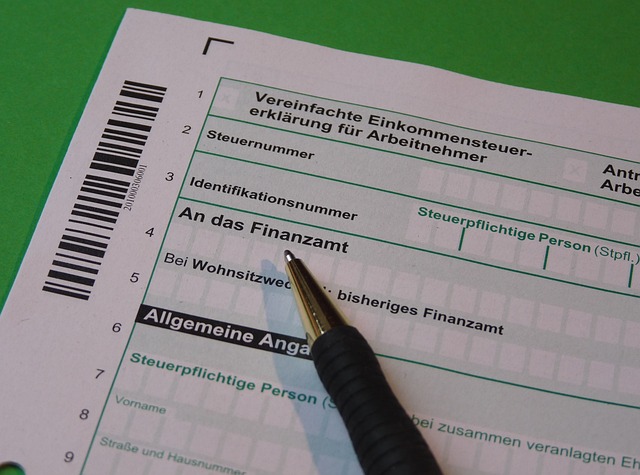Mastering UK Tax Filings: The Key Role of Accurate Translation Services
The UK's complex tax system poses challenges for non-native speakers and international entities, highlighting the critical need for Tax Documents UK translation services. These specialized services employ experts who combine deep tax terminology…….

The UK's complex tax system poses challenges for non-native speakers and international entities, highlighting the critical need for Tax Documents UK translation services. These specialized services employ experts who combine deep tax terminology knowledge with cultural nuance and local law understanding. By ensuring accurate translations, they help businesses and individuals avoid penalties, facilitate smooth tax returns submission, and maintain positive relationships with HMRC. Engaging these professionals is crucial for precise financial reporting, minimizing errors, expediting filing processes, and confidently navigating the complex UK tax landscape.
In the intricate landscape of UK tax filings, clarity is paramount. Understanding complex regulations and ensuring accurate translations can be a challenging symphony to orchestrate. This article navigates the crucial aspects of tax document translation, highlighting its role in compliance, addressing common challenges, and offering strategic insights. From selecting the right service to adhering to legal requirements, we explore best practices for effective tax translation management, underpinned by case studies of successful Tax Documents UK translation services.
- Understanding the Complexity of UK Tax Filings
- The Role of Accurate Translations in Tax Compliance
- Common Challenges in Tax Document Translation
- Choosing the Right Translation Service for Tax Files
- Ensuring Quality and Precision in Financial Translations
- Adhering to Legal and Regulatory Requirements
- Best Practices for Effective Tax Translation Management
- Case Studies: Successful Tax Documents UK Translation Services
Understanding the Complexity of UK Tax Filings

The UK tax system is renowned for its complexity, with various rules and regulations that businesses and individuals must navigate. When it comes to international entities or non-native speakers, understanding and accurately completing tax filings can be an even greater challenge. Tax documents in the UK often involve intricate terminology and specific requirements that are unique to the jurisdiction. This is where professional translation services come into play, ensuring that all tax-related content is conveyed clearly and precisely.
Accurate translations of tax documents are essential to avoid misunderstandings, penalties, or legal issues. UK tax translation services employ experts who not only possess a deep knowledge of tax terminology but also understand the cultural nuances and local laws. These specialized translators can help demystify complex tax forms, ensuring that every detail is correctly interpreted and represented in the target language. This level of expertise is crucial for individuals and businesses seeking to comply with UK tax regulations while operating internationally.
The Role of Accurate Translations in Tax Compliance

In the complex landscape of UK tax compliance, accurate translations play a pivotal role for non-English speaking individuals and businesses. When filing tax documents, even minor errors in translation can lead to significant misunderstandings or penalties. Therefore, professional UK tax document translation services are essential to ensure clarity and accuracy.
These specialized services go beyond simple word-for-word rendering, involving translators who not only grasp the nuances of the English language but also possess a deep understanding of UK tax laws and terminology. They help navigate the intricate details and specific requirements, ensuring that all vital information is conveyed correctly. This, in turn, facilitates seamless submission of tax returns, avoids potential audits or fines, and promotes a harmonious relationship between taxpayers and HMRC.
Common Challenges in Tax Document Translation

When translating tax documents for the UK market, businesses often encounter several common challenges. One major issue is ensuring accuracy and compliance with local regulations, as tax laws can vary significantly between countries. Misinterpretations or simplifications in translation may lead to errors, causing delays and potential legal issues.
Another challenge lies in maintaining clarity and readability while conveying complex financial information. Tax documents often include intricate details, charts, and terminology specific to the UK tax system. Professional translators must possess a deep understanding of both languages and fiscal concepts to articulate these ideas precisely, avoiding ambiguity that could confuse taxpayers or tax authorities.
Choosing the Right Translation Service for Tax Files

When it comes to tax filings, accuracy and precision are paramount. Choosing the right UK tax documents translation service is crucial to ensure compliance and avoid potential pitfalls. Look for providers that not only offer native-level proficiency but also have experience in legal and financial translations, as these sectors require specific terminology and a deep understanding of regulatory requirements.
Reputable firms will employ professional translators with expertise in tax-related terms, ensuring that your documents are translated correctly and contextually. Additionally, they should provide transparency through clear pricing structures and turnaround times, giving you peace of mind throughout the process.
Ensuring Quality and Precision in Financial Translations

When it comes to UK tax filings, accurate translations are paramount to avoid misunderstandings and penalties. Engaging professional tax document UK translation services ensures that financial information is conveyed with both quality and precision. These services employ translators who not only possess expertise in taxation but also have a deep understanding of both the source and target languages.
Professional translators meticulously review technical terms related to taxes, ensuring they are accurately translated into the appropriate context. They also stay updated on changes in tax laws and regulations, both in the UK and the country where the document is being submitted, to deliver translations that align with the latest requirements. This level of expertise minimizes errors and ensures compliance, making it a crucial step for individuals and businesses navigating complex international tax obligations.
Adhering to Legal and Regulatory Requirements

When translating tax documents for the UK market, adhering to legal and regulatory requirements is non-negotiable. Accuracy is paramount, as even minor errors can lead to serious consequences, including fines and delays in processing. Reputable UK tax document translation services understand these intricacies and employ professional translators who are not only fluent in English but also possess deep knowledge of UK tax laws and terminology.
This expertise ensures that translated documents accurately convey the original intent and meaning, meeting both legal compliance and practical requirements. Using such services can significantly reduce the risk of errors, streamline the filing process, and foster a seamless experience for businesses navigating the complex landscape of UK taxation.
Best Practices for Effective Tax Translation Management

When it comes to UK tax filings, clear and accurate translations are paramount to avoid misunderstandings and penalties. Effective tax translation management involves several best practices that businesses should adhere to when dealing with foreign language tax documents. One of the key principles is to use qualified professionals who possess not only linguistic expertise but also a deep understanding of both the source and target tax systems. This ensures that technical terms and concepts are translated accurately, preserving the intended meaning and compliance with UK regulations.
Another crucial aspect is maintaining consistency throughout the translation process. Standardizing translations across different documents and ensuring terminological harmony helps to avoid confusion and ambiguity. Tax-specific glossaries can be created and updated regularly to provide a reliable reference for common terms. Additionally, integrating quality assurance measures, such as proofreading and peer review, guarantees that errors are caught early, enhancing the overall accuracy of the translated tax filings. Engaging reputable UK translation services specializing in tax documents is an excellent step towards ensuring clarity and precision in cross-border fiscal communications.
Case Studies: Successful Tax Documents UK Translation Services

Successful tax document translations in the UK often involve case studies that highlight effective strategies and best practices. One prominent example is a multinational corporation that expanded its operations to the UK. To ensure compliance, they partnered with a specialized Tax Documents UK translation service. The service not only translated key fiscal documents but also integrated cultural nuances and legal terminology accurately, avoiding potential errors and penalties.
This case study demonstrates the importance of professional translation in navigating complex tax regulations. By leveraging expert knowledge and advanced tools, the translation service streamlined the process, enabling the company to focus on its core business activities. The successful outcome included timely submissions, reduced administrative burdens, and a stronger foundation for future growth within the UK market.
When it comes to UK tax filings, clear and precise translations are paramount. By understanding the intricate nature of tax compliance and leveraging high-quality Tax Documents UK translation services, businesses can navigate the challenges posed by multilingual tax documentation with confidence. Adhering to legal requirements and implementing best practices ensures accuracy and fosters a seamless tax filing process. Ultimately, investing in expert translation management is key to avoiding penalties and maximizing compliance.







